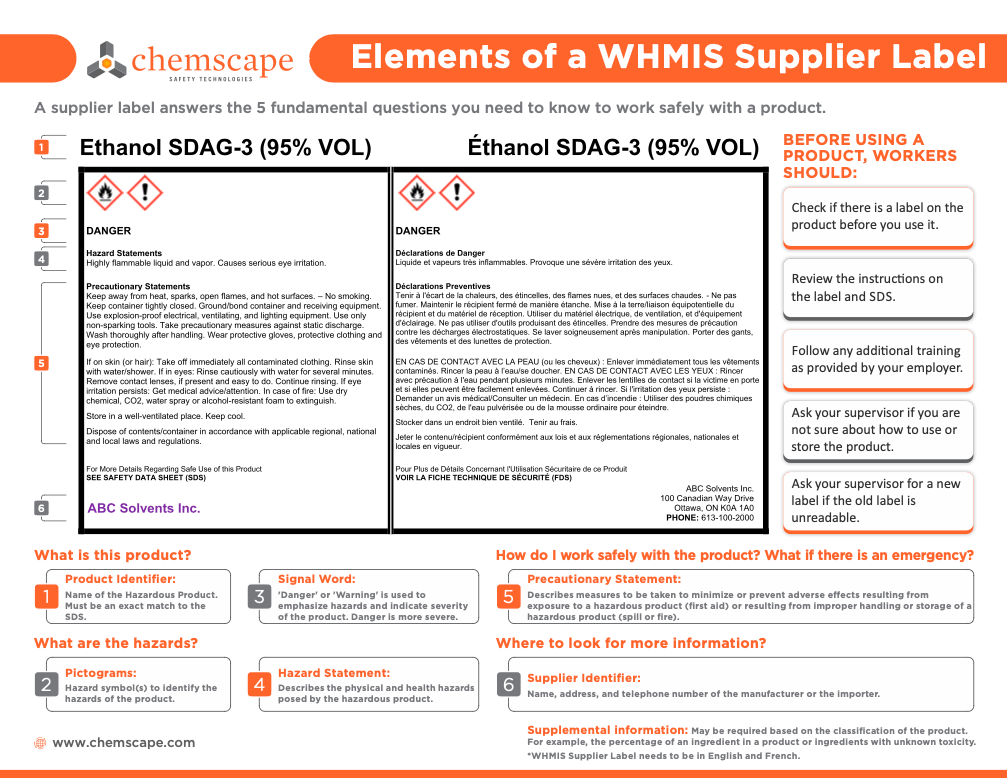Elements of WHMIS Supplier Labels
A WHMIS supplier label answers the 5 fundamental questions you need to know to work safely with a product:
- What is the product?
- What are the hazards?
- How do I work safely with the product?
- What if there is an emergency?
- Where do I find more information?

What Should Workers Do Before Using a Product?
- Check if there is a label on the product before you use it.
- Review the instructions on the label and SDS.
- Follow any additional training as provided by your employer.
- Ask your supervisor if you are not sure about how to use a product.
- Ask your supervisor for a new label if the old label is unreadable.
5 Fundamental Questions to Ask When Working with a Hazardous Product
1. What is the Product?
You can better understand the product you are using by looking for the following elements on the WHMIS supplier label:
- Product identifier: Name of the Hazardous Product. Must be an exact match to the SDS.
- Signal word: 'Danger' or 'Warning' is used to emphasize hazards and indicate severity of the product. Danger is more severe.
2. What are the hazards?
You can better understand the hazards of a product by looking for the following elements on the WHMIS supplier label:
- Pictograms: Hazard symbol(s) to identify the hazards of the product.
- Hazard statement: Describes the physical and health hazards posed by the hazardous product.
3. How do I work with the Product? & 4. What if There is an Emergency?
You can determine how to work with a product by reading the precautionary statement on the WHMIS supplier label. The precautionary statement describes measures to be taken to minimize or prevent adverse effects resulting from exposure to a hazardous product (first aid) or resulting from improper handling or storage of a hazardous product (spill or fire).
5. Where Do I Find More Information?
To find more information, look for the supplier identifier, which shows the name, address, and telephone number of the manufacturer or importer.
Note: supplemental information may be required based on the classification of the product. For example, the percentage of an ingredient in a product or ingredients with unknown toxicity.



